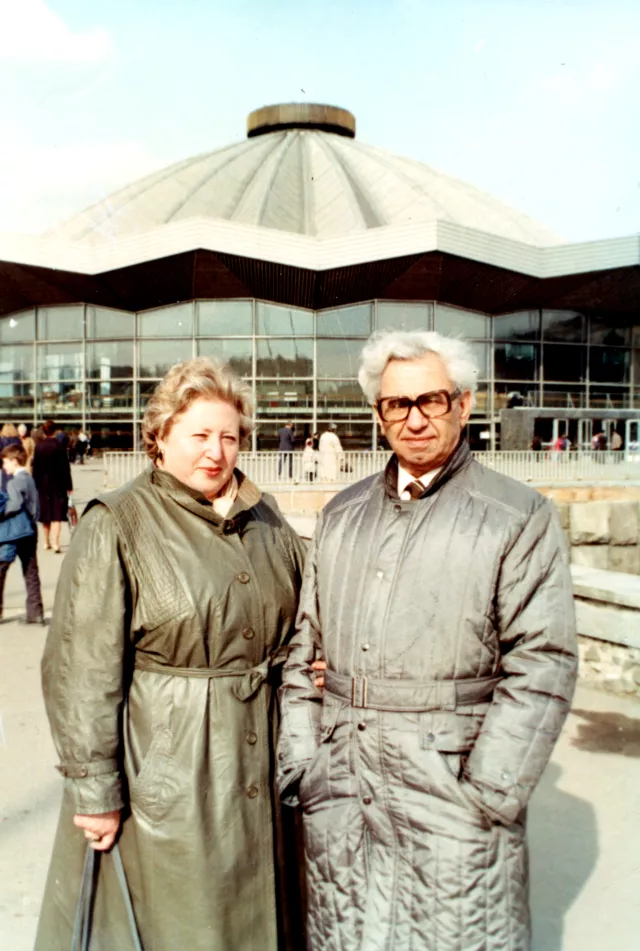This is my husband Yuzef Kirtzer and I in Moscow in 1989. We were photographed near the circus.
At the end of the 1960s I got a job at the ‘Giprostesneft’ institute designing potable and industrial water supply for oil industry. I worked there 33 years until I retired.
I went on interesting business trips and had an interesting and multifarious job. I liked my work. From engineer I was promoted to project chief engineer. I was leader of a group and worked independently, but I never went on trips abroad. I retired in 1992.
I always wanted to be a teacher. I decided to implement this after I retired and went to work as a teacher of geography at a school. I received a very low salary since I didn't have previous experience, but I liked this job. I
had training and studied at the Teachers' Advanced Training College. I worked at school from 1993 till 1999. After six years of work I understood that it was good that I hadn't become a teacher. There are many negative things in our educational system.
There is a lot of tension at school, suppression of free development of personality - I didn't like it. I also taught the history and geography of Moscow. I like Moscow very much. I studied its history. It is also the history of my family.
My husband worked as a teacher of an art subject in the theatrical Art School. He worked in this school until he retired in 1990. Then he worked at the department of art in Moscow Pedagogical College.
At that time his textbook in drawing for secondary and special educational institutions was published. It is still very popular. Besides, he did creative work for students’ performances.
He was a talented and extraordinary man. We had an open house and there were always guests. My co-students came and he invited artists and students.
Our family was very enthusiastic about perestroika that began when Gorbachev came to power. His personality inspired hope. He had a university degree and was a relatively young man.
In 1986, my father's sister Frieda told me that she became weak in her knees after she heard on the radio that it was allowed to meet with relatives from abroad.
Her only son Yuli had emigrated to America in 1978. A year later she visited her son.
What impressed me at the beginning of perestroika was that we could watch the films that we could never believe we would ever be allowed to see.
















